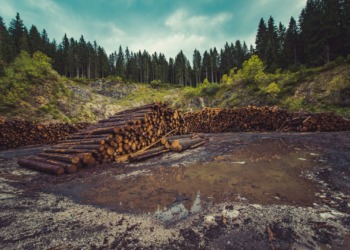Oil and energy giant Shell — whose last quarterly profits totalled $5.1 Billion — has hit controversy by using the online video game Fortnite to aim its products at younger people.
The oil company has recently launched a new type of fuel called V-Power Nitro+ a premium gasoline fuel designed to both clean and protect engines. It does this in three ways: by reducing engine friction, preventing deposit buildup and using cleaning agents to help clean an engine’s intake valves and fuel injectors.
Of course, big oil companies coming up with new sponsorships and campaigns is nothing new. However, using video games to promote the new fuel to young people has led to protests from environmental groups and media spokespersons.
“Shell’s marketing to young people is another example of how big oil puts profit over people and the planet, even though it has known for decades that the product that it sells is driving the climate crisis,” said Allison Fisher, Director of the Climate and Energy program at Media Matters.
What is Fortnite and why is it important?
Since its release in 2017, Fortnite has been a massive hit in the video gaming world and gained a loyal following of hundreds of millions of players worldwide, with many seeing it as a cultural phenomenon.
It is a battle royale-style game that pits up to 100 players against each other until only one player or team of players is left. Not only is the game immensely popular in its own right, but it also has streamers — individuals who broadcast live video gaming sessions — over the internet.
These streamers are important due to their vast popularity — it is estimated that the number of gaming video content viewers worldwide is 1.2 billion. This is mostly done on platforms like TikTok, Twitch, Instagram and YouTube.
How is Shell targeting gamers?
Both environmental campaigners and media figures are criticising Shell for its use of Fortnite, and its efforts to use influences and streamers to promote its products to young people.
The promotion, called “Shell Ultimate Road Trips,” takes the form of a new virtual island within the fortnight game. Fortnight players drive through six different areas with a gas station in the middle. The virtual adventure is powered by the new Shell V-Power Nitro + gasoline, and players are also encouraged to share screenshots using #ShellRoadTrips to be featured by their favourite gamers and influencers.
Related articles: Victory for Climate Movement: Oil Giant Shell Condemned by Dutch Court | Science Museum Faces Protests Over Decision to Accept Shell as Sponsor of Fossil Fuel Exhibit | Could US Oil Companies Be Tried for ‘Climate Homicide’? | Big Oil Sees Record Profits: ‘Exxon Made More Money Than God This Year’
A promotion description of the game was featured on the website fortnitecreativehq.com (FCHQ):
“6 of the best map creators. 6 of the most challenging terrains. 1 map. Get ready for an adventure that is all about speed, acceleration, and performance, powered by Shell V-Power NiTRO+ Premium Gasoline.”
Why is Shell targeting gamers?
Research shows that young people are perhaps the most concerned demographic when it comes to climate change, begging the question: Is Shell trying to directly challenge the climate crisis concerns of young people through one of their favourite pastimes?
Since this is not the first time Shell has targeted gamers, many in the industry see the Fortnite collaboration as simply the latest in a line of promotions to win over younger demographics. Back in 2021, for instance, Shell sponsored the League of Legends European Championship (LEC) esports event.
So, is the strategy working?
It’s too early to see if Shell’s tactic to win over the youth demographic will be successful, but it can be perhaps gauged by the response of Aru Shiney–Ajay, executive director of advocacy group Sunrise Movement:
“This is another desperate move by a dying company. Gen Z knows the truth about the fossil fuel industry, and companies like Shell know it. This is just the latest attempt to buy their way to survival.”
Editor’s Note: The opinions expressed here by the authors are their own, not those of Impakter.com — Featured Photo Credit: Lalesh Aldarwish.










